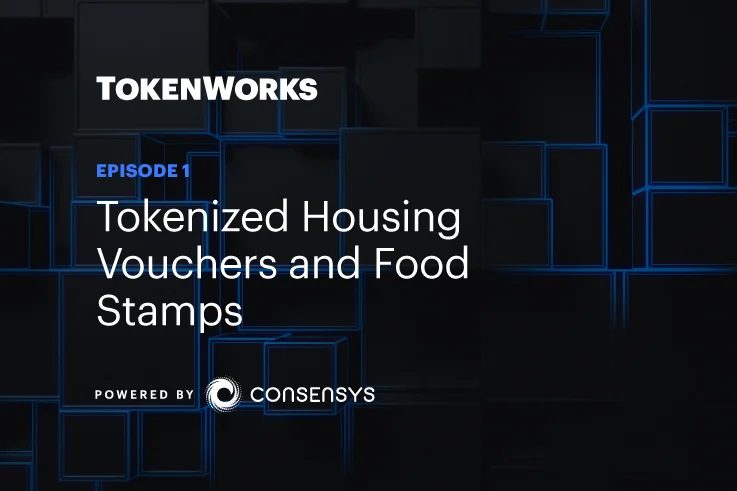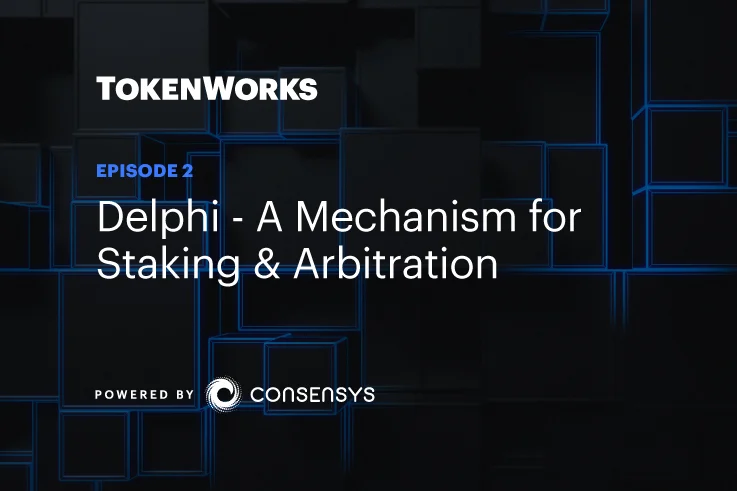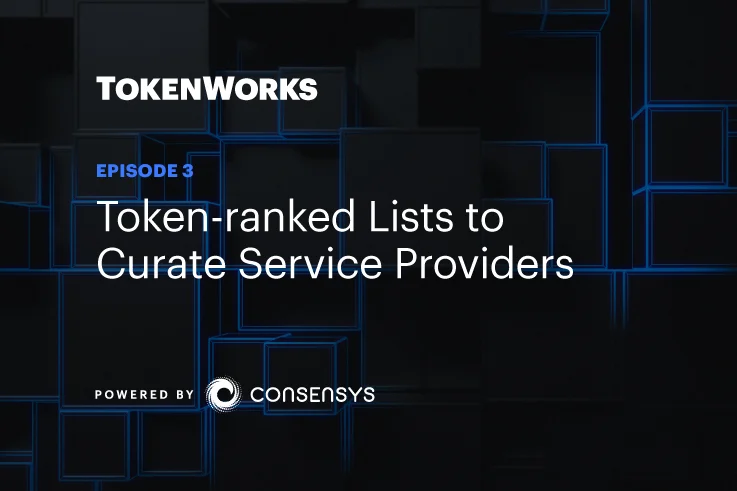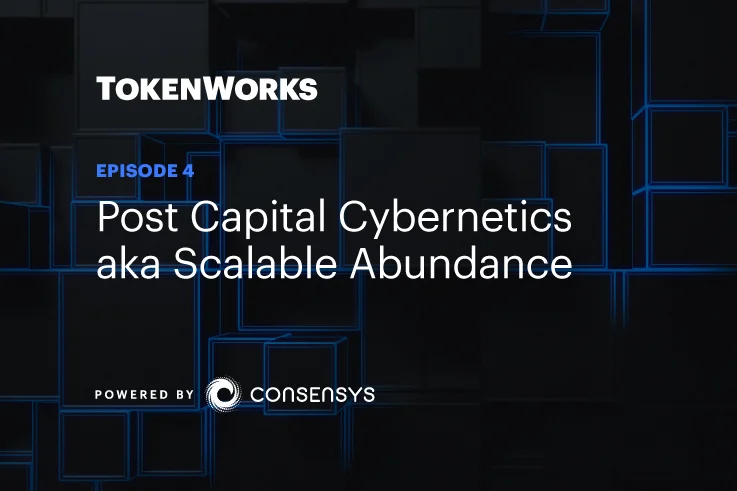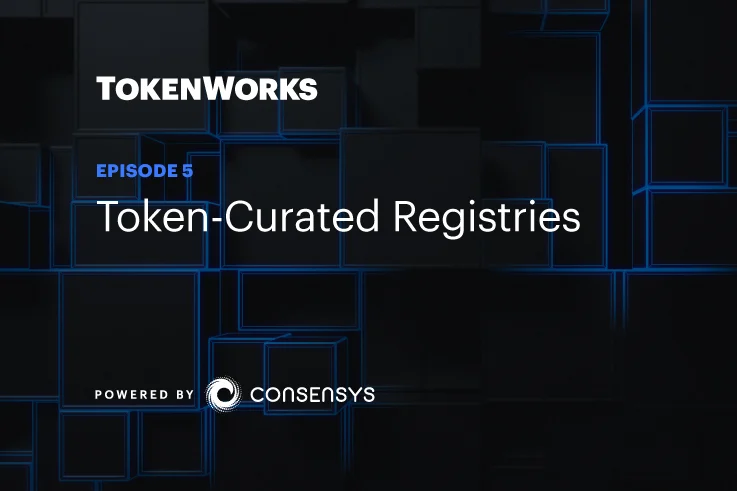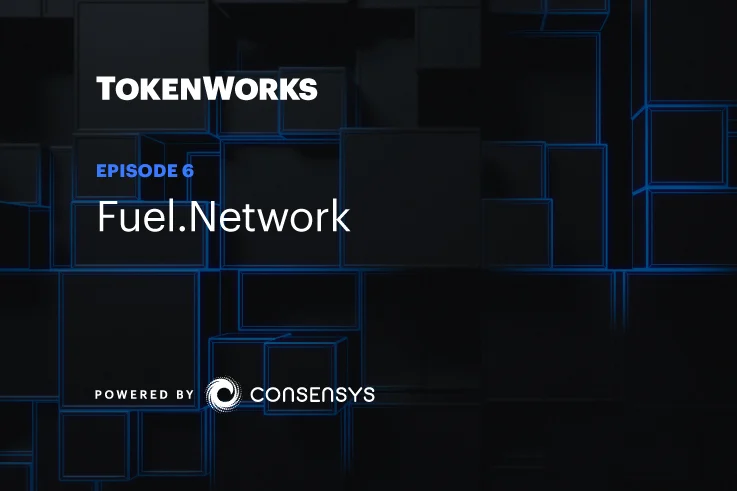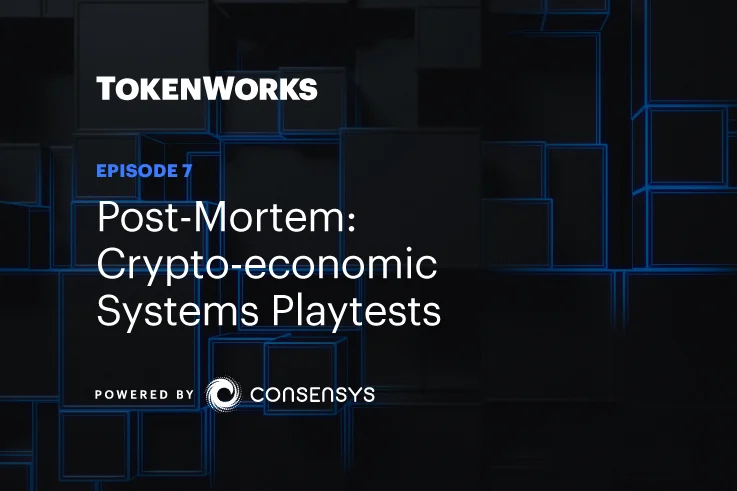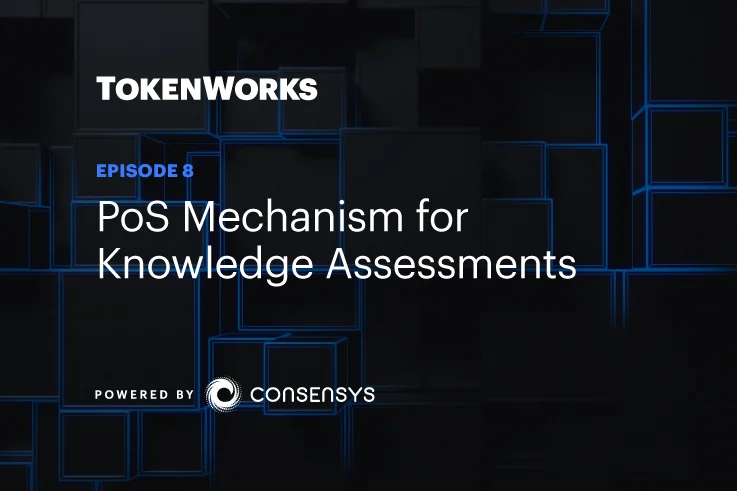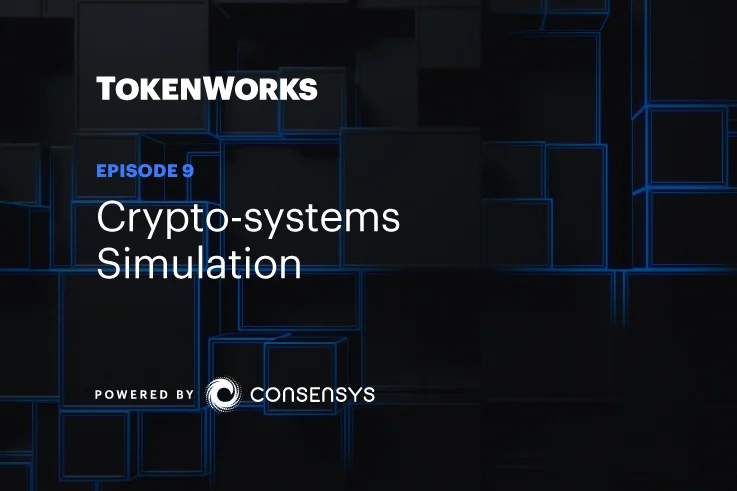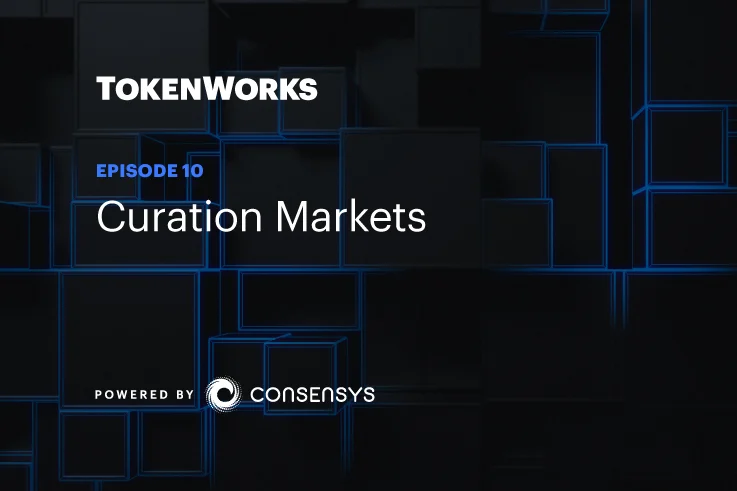
Crypto-economic Research Series
TokenWork Series
TokenWork is a Consensys cryptoeconomics research series focused on community development, thought leadership, knowledge sharing, and furthering the discussion about tokenization and cryptoeconomics design.
Episode 1
Tokenized Housing Vouchers and Food Stamps
The proposed “Re-Fungible Service Token” (RFST) model is a variant of Rennekamp’s “Re-Fungible Token” architecture, a model in which you could have a non-fungible asset tied to fungible liquidity — enabling that asset to “become fungible again.” The RFST model also shares a likeness to the Bancor Smart Token, an ERC20 (fungible) token that is connected to another, more liquid ERC20 token. This session will explore applying RFST to tokenize housing vouchers and food stamps.
Episode 2
Delphi - A Mechanism for Staking & Arbitration
The Bounties Network presents Delphi: a mechanism for staking and arbitration to solve the problems that are inherent to trusted service transactions like bounties. By relying on a TCR of trusted individuals, we can get fairer judgements than we might with a simple schelling-coin, and we can move towards a more robust solution for the oracles problem.
Episode 3
Token-Ranked Lists to Curate Service Providers
The function of a Token-Ranked List is the curation of value-based relationships with Service Providers. The design of a Token-Ranked List allows Consumers to de-centrally curate a list of Service Providers based on relative performance over a period of time. Under this model, Consumers are the Curators.
Episode 4
Post Capital Cybernetics AKA Scalable Abundance
The purpose of the model is to provide an economic framework model abstraction for how people and organizations can come together and transact and organize in such a way that profit and purpose become synonymous: require giving before significant profit, enforced programmatically both at the application and at the protocol level.
Episode 5
Token-Curated Registries
There are now two TCRs live on the Ethereum mainnet. What have we learned about the TCR idea from seeing these few in production? What are the problems? How can we do better?
Episode 6
Fuel.Network
Introduction to the fuel.network project. The idea is to improve the Ethereum user experience by making the end user’s interaction with blockchain easier. Fuel will allow dapps to pay transaction fees on behalf of their users by directing those transactions to gas providers on the Fuel network. This would enable a set of user-friendly features: no payment of fees, no management of private keys, and better user flow.
Episode 7
Postmortem: Cryptoeconomic Systems Playtests
The Cryptoeconomic Productization Lab, a ConsenSys project, has held two live playtests of Token-Curated Registries (TCRs) with actual users. We’ve succeeded, failed, and, overall, become more and more convinced of their importance to our design process. Come to this talk for an honest look at our journey in playtesting cryptoeconomic systems.
Episode 8
Sharded PoS Mechanism for Knowledge Assessments
Fathom is a decentralized protocol for creating and assessing credentials through the consensus of knowledge communities. The protocol enables communities to form around the concepts they care about and create definitions of what it means to know them. Fathom incentivizes members to use these definitions to accurately assess those looking to gain credentials and join the community. It connects concepts into a hierarchical ontology which allows the network to grow naturally and securely.
Episode 9
Cryptosystems Simulation
We’ve been designing token economies blindly. Most token mechanisms today have been built with guesswork, large assumptions about human behaviors, and a hint of analysis. Guesswork and analysis can only take us so far. With analysis, you can only study theoretical limits and happenings. Simulations, on the other hand, can reveal things that you can’t theoretically compute. It can reveal things that our linear-thinking human minds cannot predict.
Episode 10
Curation Markets
Curation Markets is a subset of cryptoeconomics that revolves around the utilization of token-weighted games and signaling to curate information. This process would ideally boost novelty of information being shared. Because Curation Markets add fungible value to new networks, they can also create and foster thousands of new communities to co-create around shared goals.

Join Us
Help us build a decentralized future. Find your spot in the Mesh.
